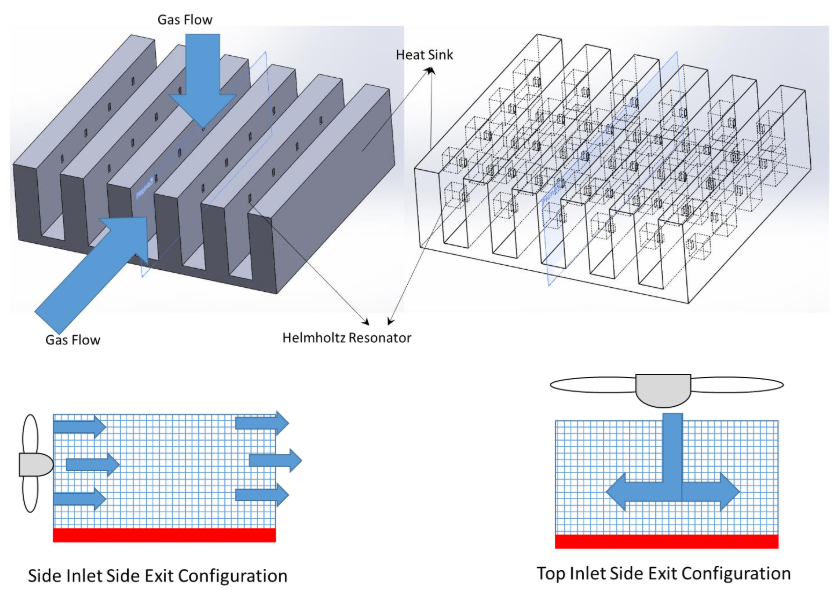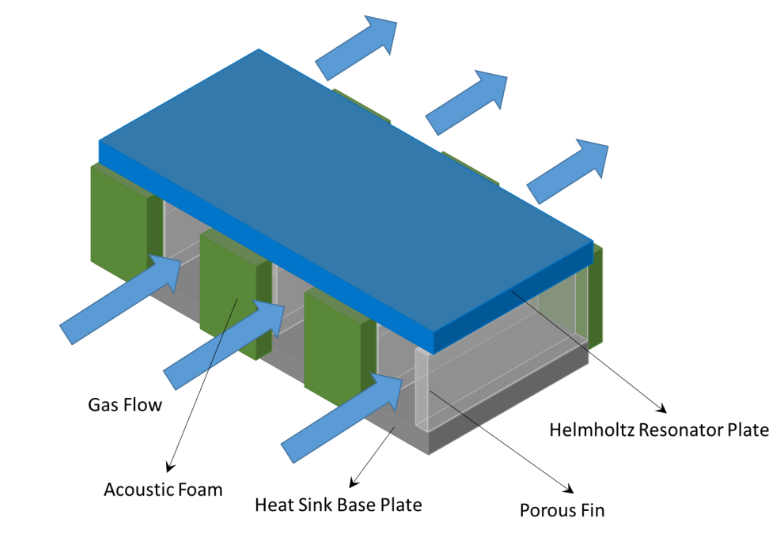This innovation addresses the dual challenges of heat dissipation and noise reduction in high-performance applications. By integrating these functionalities into a single device, the technology offers a compact solution for environments where space and performance are critical. Applicable across various industries such as electronics, data centers, automotive, aviation, and defense, it uses porous fins and structural acoustic silencers to ensure efficient thermal management while mitigating noise. This enhances operational efficiency, improves working conditions, and meets increasing demands for quieter electronic devices.
High-performance applications, such as electronics cooling and data centers, face the dual challenge of managing heat dissipation and noise reduction. Traditional solutions handle these issues separately, leading to inefficiencies and space constraints. As devices become more compact and performance demands increase, integrating these functionalities into a single, efficient solution becomes critical to maintain operational effectiveness and meet regulatory requirements & user demands for quieter, more efficient systems.
This technology can manage both thermal and acoustic performance simultaneously, unlike existing technologies that address these challenges separately. It utilizes porous fins and structural acoustic silencers to uniquely integrate heat dissipation and noise reduction functions, addressing both aerodynamic and operating noise from fans, into a single device. This dual functionality device is designed for compact, high-performance, space-constrained applications where space is at premium.
The prototype uses a combination of porous fins for heat dissipation and structural acoustic silencers for noise reduction. It demonstrates excellent thermal resistance with low pressure drop, making it suitable for high-performance applications. The compact design fits into existing systems without requiring significant modifications.
The testing and demonstration has been completed for a combined tonal- and broadband-noise reducing heat sinks in the lab.
3
Reducing noise in high-performance environments such as data centers can significantly improve the working conditions for operators, preventing potential hearing problems and enhancing productivity. This technology also addresses the increasing demand for quieter electronic devices in consumer and industrial sectors.
- Electronics Cooling: This technology enhances performance and reduces noise in consumer electronics, gaming consoles, laptops, and high-end desktops.
- Data Centers: It mitigates noise pollution and improves cooling efficiency in server environments, crucial for maintaining operator health and productivity.
- Automotive: The device addresses noise regulations and customer demands for quieter vehicles, while managing heat in compact spaces.
- Aviation and Defense Systems: It ensures stealth and thermal management in confined spaces, critical for high-performance applications.
201921036689
510453


